On March 13, a delegation from the University of Notre Dame comprising Michael E. Pippenger, the Vice President & Associate Provost for Internationalization, and Wang Jingyu, the Executive Director of the Beijing Global Gateway, visited Tsinghua University. Hongwei Wang, the Vice President of Tsinghua University, greeted the delegation at the Gongzi Hall. The meeting between the two universities aimed to foster a deeper understanding and enhance cooperation in education, research and other areas of common interest. Hongwei Wang and Michael Pippenger signed a university-level memorandum of understanding on behalf of their respective institutions. Yuan Shen, Council Chair of the Department of Electronic Engineering, Jian Liu, Deputy Dean of the School of Architecture, Hui Wang, Deputy Director of Office of the International Affairs, and Maokun Li, Deputy Chair of the Department of Electronic Engineering, were present at the meeting.
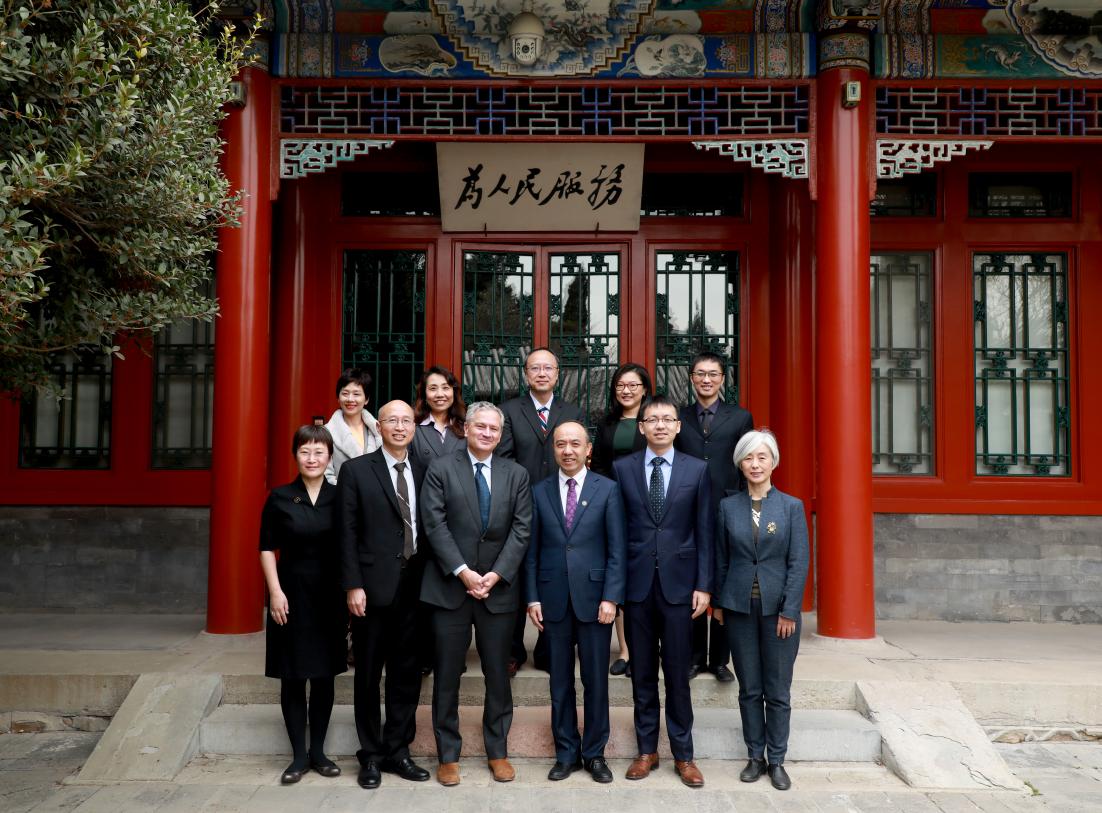
Group photo from both Universities
The delegation then visited the Department of Electronic Engineering, where they were warmly welcomed by the Department Chair, Yu Wang. Wang highlighted the Department's 70-year history and latest efforts towards cultivating high-quality students. “Tsinghua EE forges partnerships with outstanding academic institutions across the globe to expand the student experience, faculty development and contributions, and the impact of our research,” he emphasized the Department's internationalization efforts through the years. He also noted his wonderful experience when visiting the campus of Notre Dame. Tsinghua EE Department are looking forward to exploring cooperation and forging partnerships with top-tier universities such as University of Notre Dame.
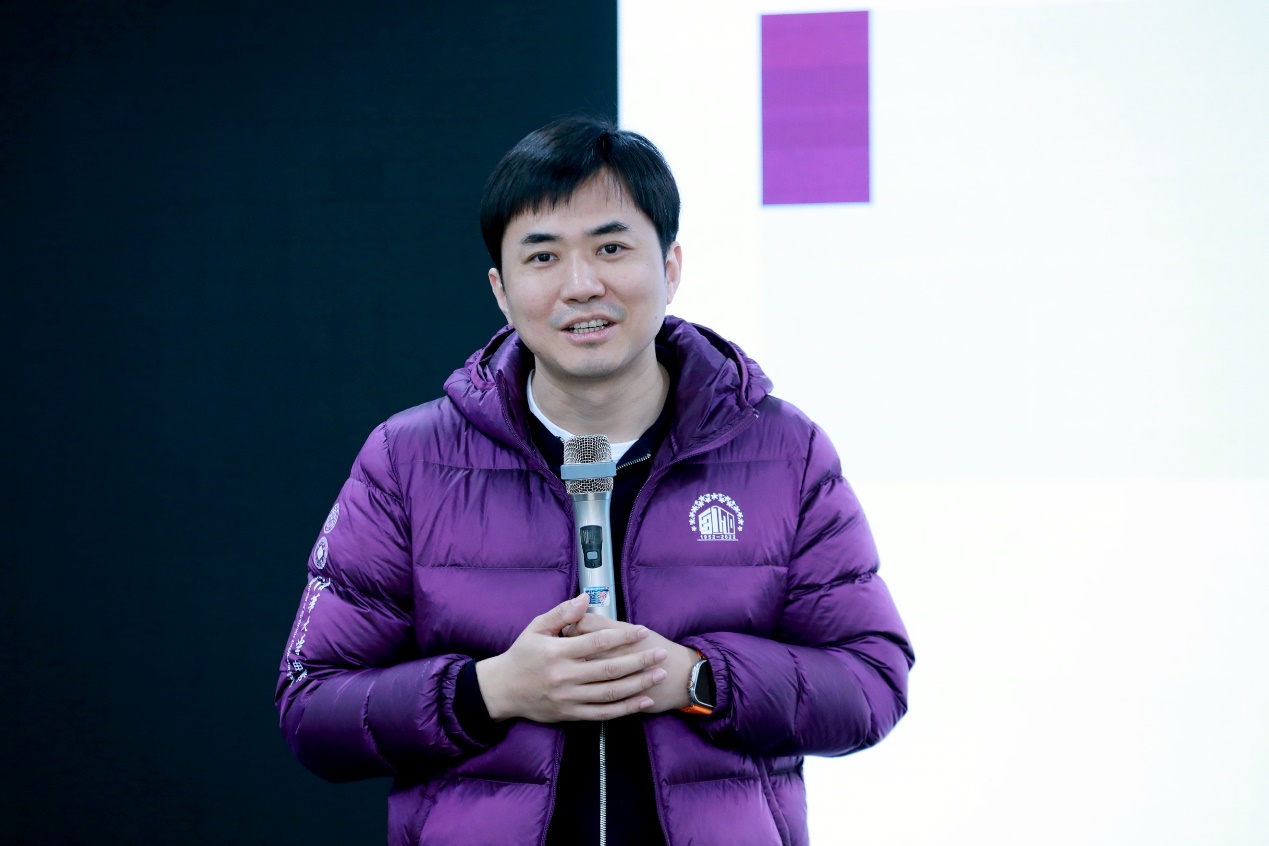
Yu Wang, Chair of the Department of Electronic Engineering
Yuan Shen introduced the international collaboration and student development plans of the Department. “It is a priority to cultivate the students' global perspective and competence,” Shen said, “Tsinghua students should broaden their vision beyond its own country.” He also noted that the Department launched the "Sustainable Innovation Initiative" in 2022, in light of the interdisplinary characteristics of electronic engineering. This initiative aims to develop innovative technology solutions for the United Nations' 2030 sustainable development goals and cultivate innovative students with global perspective and interdisciplinary backgrounds. At the same time, the Department will continue to promote the flagship international cooperation project, the "Tsinghua Oversea Student Exchange Program in Electrical Engineering " (TOP EE). “ We look forward to bringing students and scholars from top-tier institutions such as University of Notre Dame together to forge impactful partnerships in the years to come,” Shen said.

Yuan Shen, Council Chair of the Department of Electronic Engineering
Dr. Yi Jiang, the director of the Sustainable Innovation Initiative introduced the recent progress and achievements of the Initiative. The Department has collaborated with Harvard University to offer a joint course on sustainable innovation and climate change, and held a workshop on climate change, urban resilience, and low-carbon cities with the faculty and students from the University of Hong Kong. The Initiative team also assisted in organizing the Third International Forum on Engineering Education jointly hosted by UNESCO, the Chinese Academy of Engineering, and Tsinghua University, with the theme of “Sustainable Innovation in Information Technology". Additionally, the Initiative has provided support for research projects and teams in the field of sustainable development. Three faculty and student teams from the EE Department and the School of Architecture then presented their research progresses in the field of sustainable development.
Maokun Li and his team members, Dr. Rui Guo and intern Lana Chen, presented their work on "Developing Advanced Real-time Chest Imaging Technology." Li began by sharing the story of how his team of four founding members initially came together and explained the function of a healthy ecosystem to help facilitate technological innovation and technology transfer. He showcased the entire process from the team's initial idea to its clinical trial stage, including the technical innovation points of the product, the company's development process, competitive advantages based on comparative analysis, and the application potential in rural areas. After six years of development, the team has achieved the world's first three-dimensional lung ventilation/perfusion high-resolution dynamic imaging without the need for contrast agents. By working closely with medical device manufacturers and hospitals from both China and oversea, they developed an electrical impedance imaging device for assisting in the treatment of pulmonary embolism and mechanical ventilation. The device is expected to meet clinical demand in a market worth billions of Chinese Yuan. The team has formed an integrated teaching-research-commercialization model and has trained dozens of PhD, master, and undergraduate students. In the future, relevant technological products are expected to reach rural towns and villages and save more lives through low-cost sustainable services in critical illness diagnosis, treatment, and long-term monitoring where medical resources are limited.
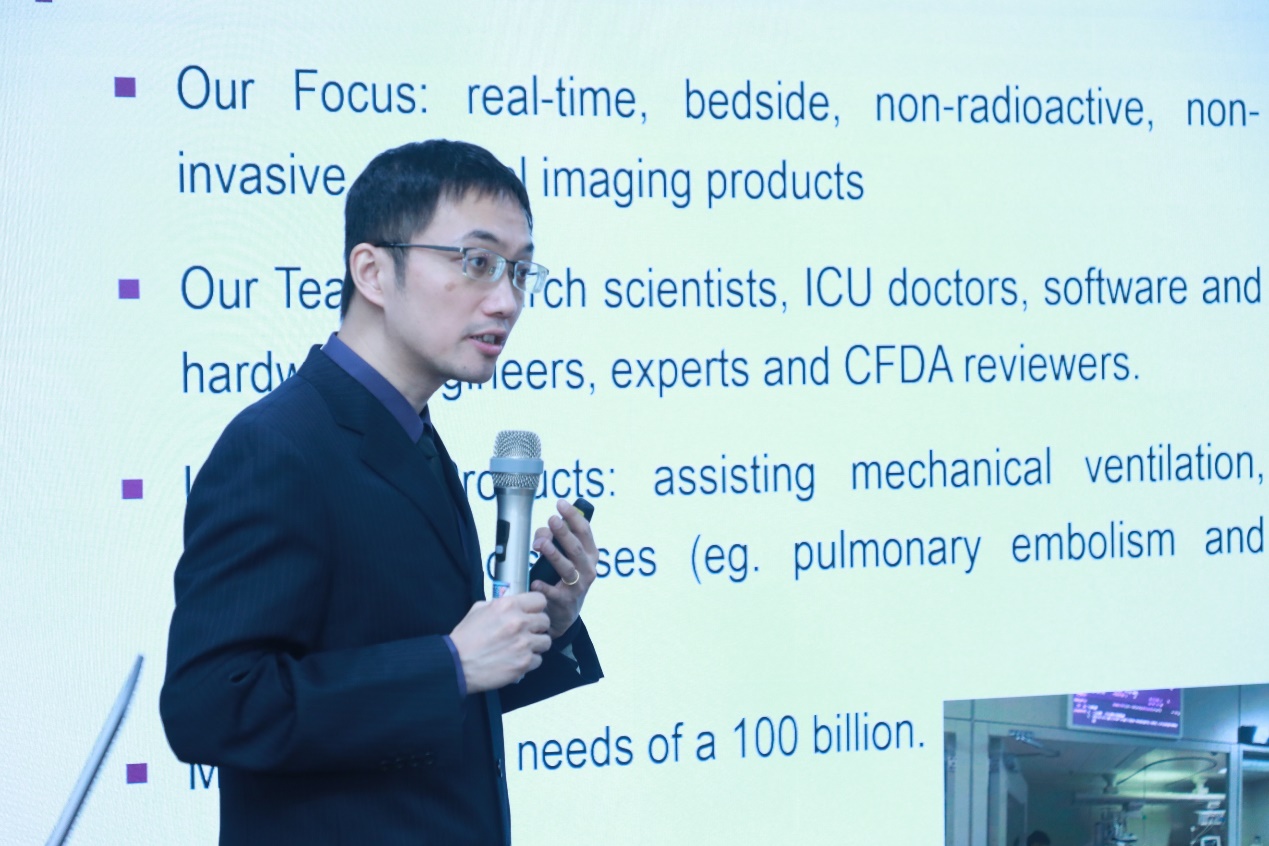
Maokun Li, Deputy Chair of the Department of Electronic Engineering
Tianyu Fu, a PhD student from the Yu Wang’s research team, shared a project titled "Charity Resource Matching with Machine Learning". He stated that the inspiration for this project came from the Tsinghua-Harvard Joint Course on Sustainable Innovation and Climate. Using a poverty-stricken African woman as an example, he vividly demonstrated the significant information asymmetry and matching difficulties that exist between the supply and demand of social charity resources. He introduced the intelligent matching system designed by the team, which utilizes AI technologies such as natural language processing and graph neural networks to automatically identify the most suitable charitable resources for those in need, and continuously learns and optimizes matching performance through user feedback.
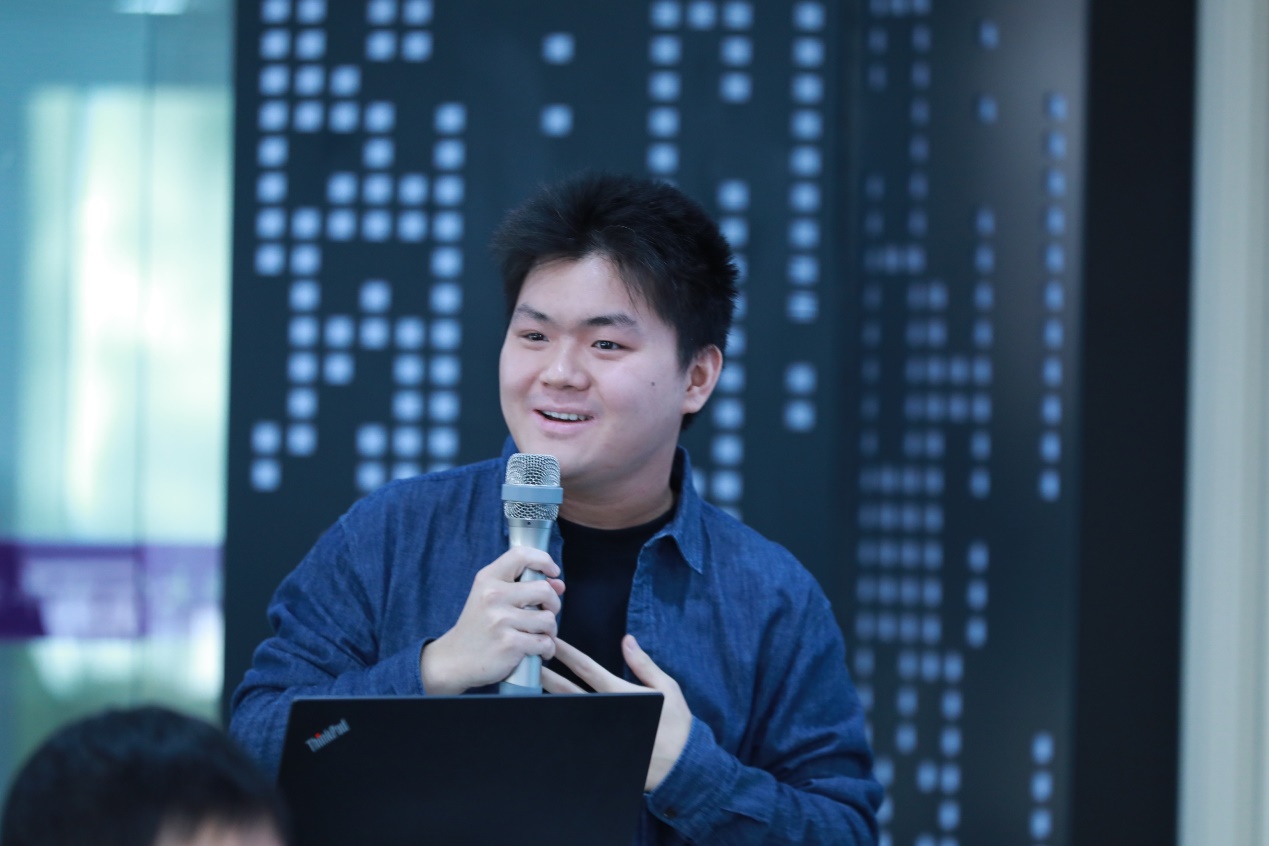
Tianyu Fu, a PhD student from Yu Wang’s group
The presentation given by Xudong Yang, Associate Dean of the School of Architecture and his PhD student Yazhou Nie introduced the team's research innovation in clean energy technology in rural areas to improve air quality and change people's lives. Currently, 2.6 billion people worldwide still use high-polluting combustion for heating or cooking, resulting in air pollution that causes one million premature deaths in China alone each year. In 2007, the team proposed the concept of "Coal-Free Villages" and constructed a demonstration project, which has received worldwide attention from Nature, CCTV and other media outlets, guiding Beijing and northern China to carry out rural building energy conservation and clean energy transformation actions. The team continues to develop clean low-carbon energy and renewable energy technologies for rural areas, innovate new models for clean heating in rural areas, and has developed a variety of cost-effective technologies such as low-temperature air-source heat pump, hot air generators, clean biomass stoves, and solar heating. These technologies have helped millions of rural households in China to replace high-polluting coal-fired boilers, and have also been applied to coal removal in Ulaanbaatar, Mongolia, and winter heating in European countries. In just a few years, the promotion of these clean energy technologies has contributed to more than 30% improvement in air quality in northern China, playing a crucial role in helping China to achieve clear skies, and is expected to reduce more than half of the health burden caused by air pollution.
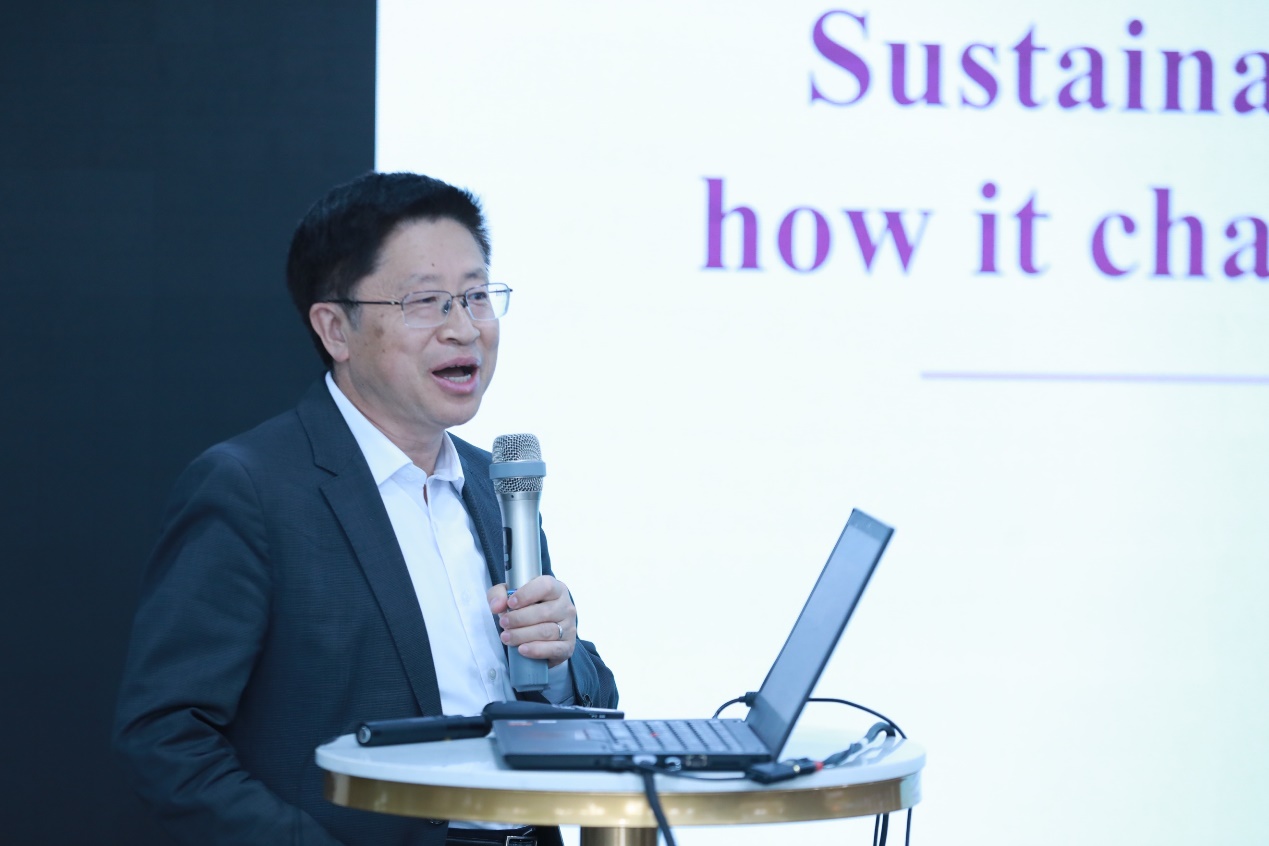
Xudong Yang, Associate Dean of the School of Architecture
The delegation from the University of Notre Dame also visited the JIE innovation center and startup companies founded by Tsinghua faculty, scholars and students located in Tongfang Plaza. Such visit helped the delegation gain a deep understanding of Tsinghua’s innovation and entrepreneurship projects, and the positive impacts of the integration of research, education, and commercialization in promoting scientific research work and student internship practices. Dr. Jing He, the partner of SEE Fund, introduced the activities of commercial transformation of scientific and technological projects.
Michael E. Pippenger stated that the visit to Tsinghua allowed him to gain a deeper understanding of the efforts made by Tsinghua students and faculty in sustainable practices and technological innovation, addressing climate change, cultivating social responsibility and global competence. He believes that universities should become promoters of crisis response and sustainable development, and looks forward to more dialogue and exchanges with Tsinghua. Both parties conducted in-depth discussions on "Tsinghua Overseas Student Exchange Program in Electrical Engineering" (TOP EE), Notre Dame students' participation in Tsinghua's sustainable innovation projects as internship and oversea study activities, Tsinghua students visiting Notre Dame University and its global gateways, and mutual visits of faculty and researchers.
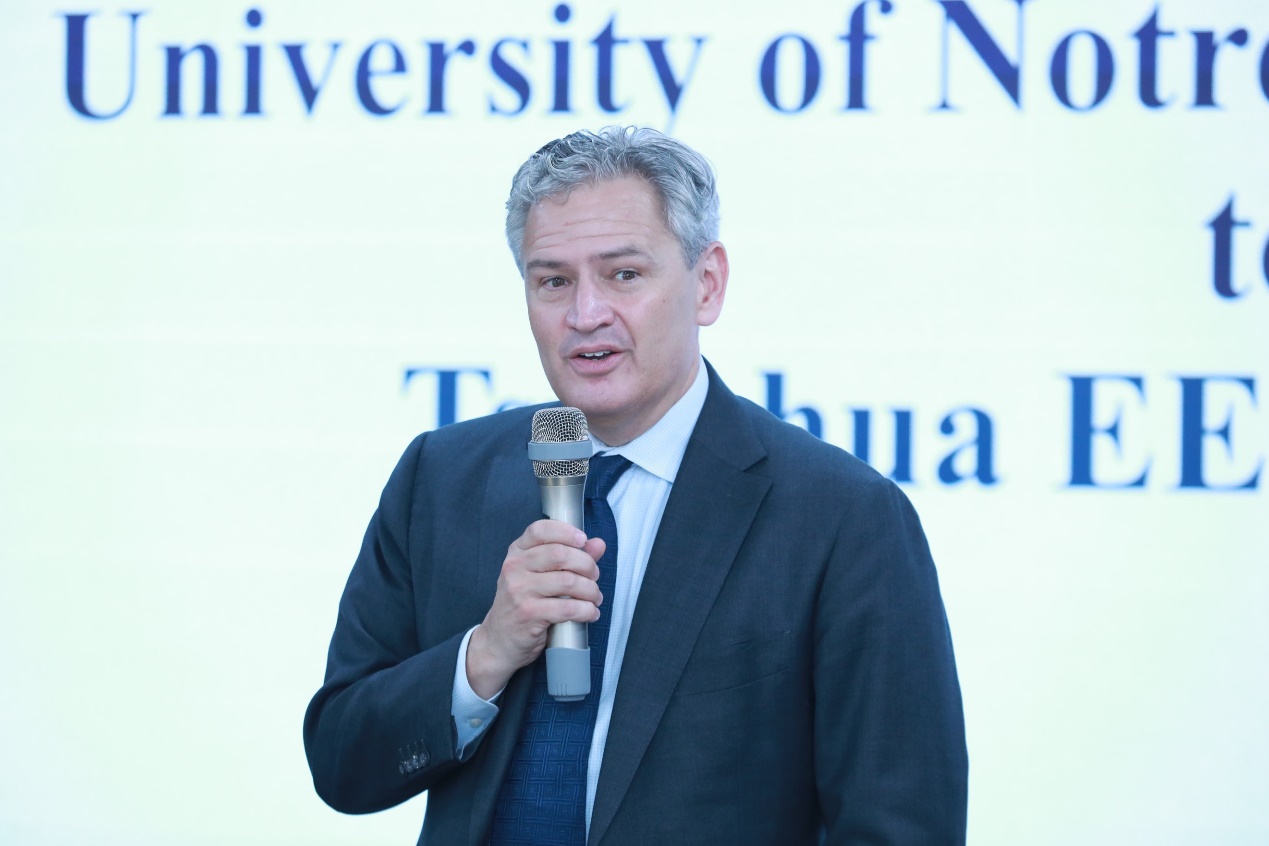
Michael E. Pippenger, vice president & Associate Provost for Internationalization of University of Notre Dame
Wenjun Zeng, Associate Dean of the Eastern Institute of Technology, Ningbo, and Yu Zhang, CTO for Intel Video, Cities and Transportation Group, visited Tsinghua University as representatives of Notre Dame alumni and parents. Hongyan Zhou, Project Manager of Tsinghua Office of the International Affairs, Yining Guo, Director of International Cooperation participated in the reception of the University of Notre Dame delegation.
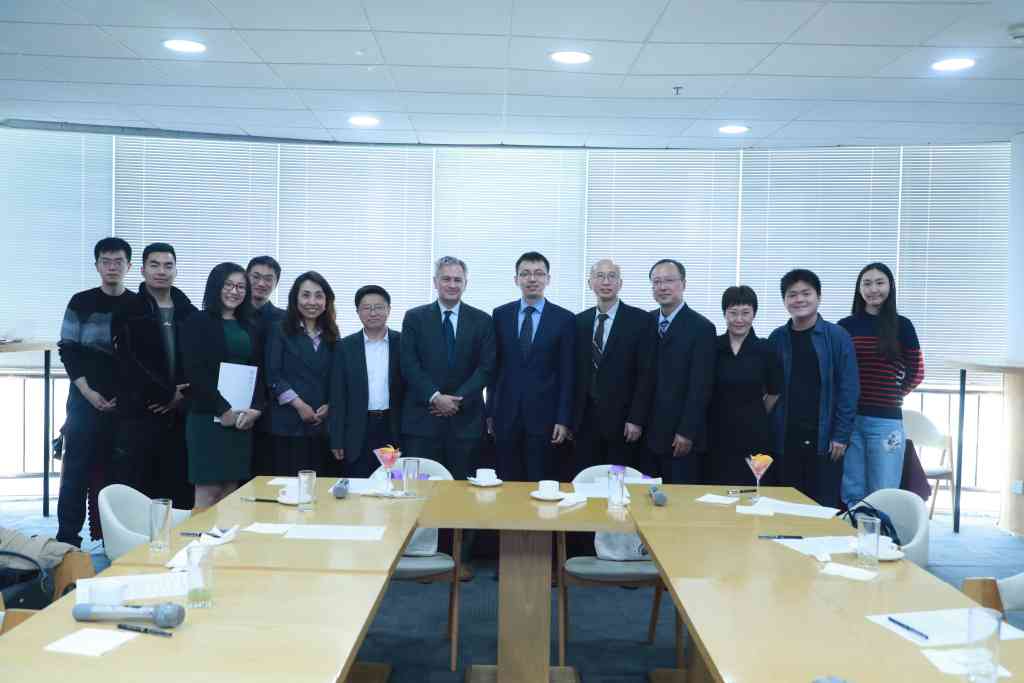
Group photo at the meeting discussion
About the Sustainable Innovation Initiative, Tsinghua University
The Department of Electronic Engineering at Tsinghua University launch its "Sustainable Innovation Initiative" in 2022. The initiative aims to develop technology solutions that promote the sustainable development goals outlined by the United Nations, as well as to establish a hub platform for international education and scientific research, with the goal of cultivating high-quality compound talents possessing a global perspective, capable of tackling global challenges and leading the new wave of digital and intelligent industrial transformation.
University of Notre Dame's Strategic Plan for Sustainability
The University of Notre Dame, established in 1842, is a privately funded research institution that is highly regarded nationally, having earned a top 20 ranking by US News. Sustainability has been identified as one of its current seven university-wide strategic plans. Moreover, the university has set a goal to become a carbon-neutral campus by 2050. Its motto, "Life, Sweetness and Hope," embodies the University's dedication to working towards a better future for the world and all of humanity.